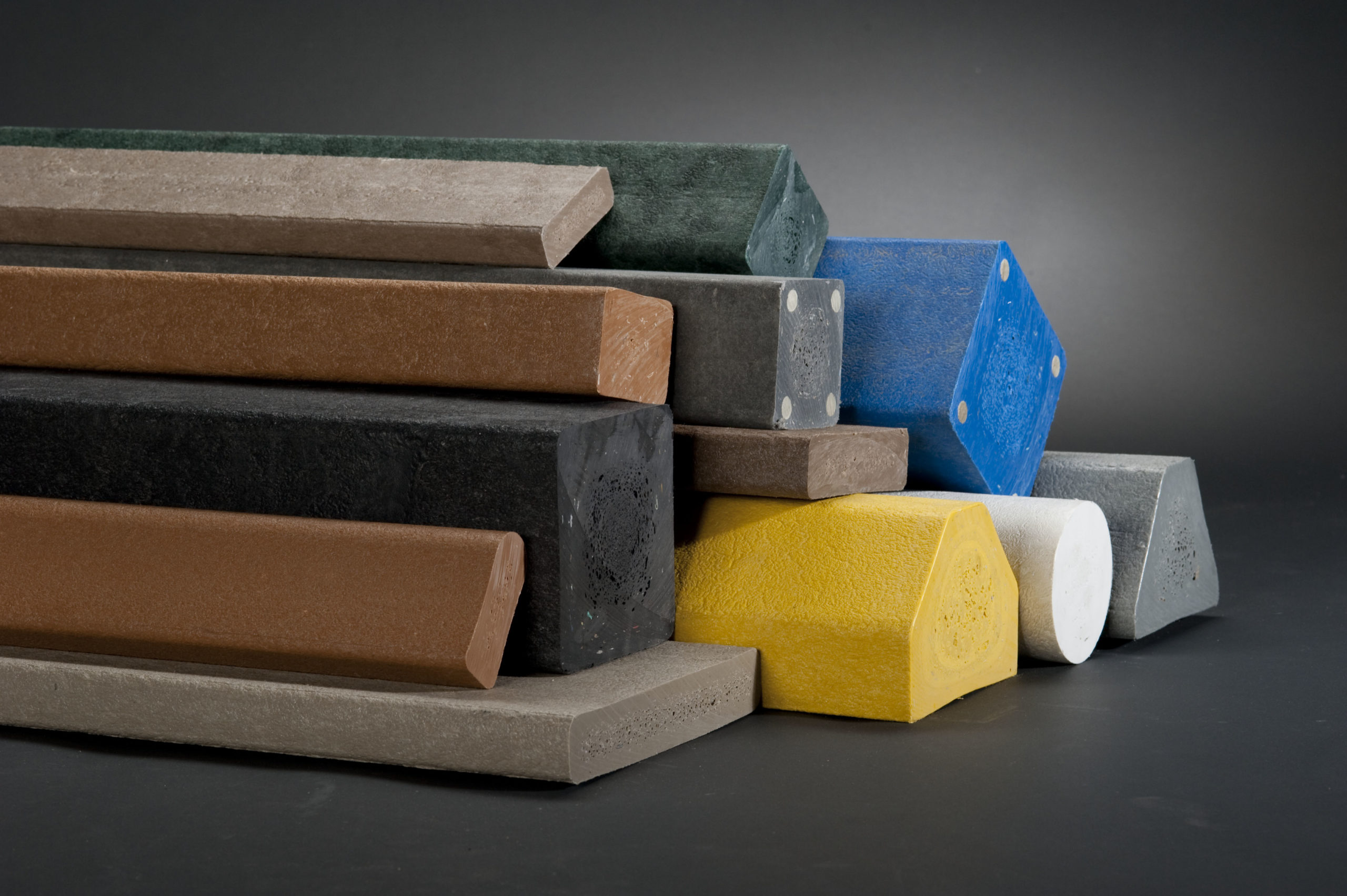Why Composites are Transforming Building Materials
Why Composites are Transforming Building Materials
Blog Article
Discovering the Uses and Advantages of Recycled Composites in Modern Industries
The combinations of recycled products with innovative composite technologies presents an encouraging method for improving sustainability, durability, and cost-efficiency across various fields. As sectors look for ingenious options to deal with ecological concerns and improve functional efficiencies, the unification of recycled compounds arises as an engaging choice.
Environmental Advantages of Recycled Compounds
The application of recycled compounds in modern industries supplies considerable ecological advantages, adding to the decrease of waste and the preservation of natural resources. By integrating recycled compounds into making processes, sectors can decrease their reliance on virgin products, therefore lowering the amount of waste produced and the power needed for removal and manufacturing. This change in the direction of utilizing recycled composites assists in diverting products from land fills, reducing the concern on waste management systems, and decreasing greenhouse gas exhausts connected with standard manufacturing practices.
Additionally, using recycled composites promotes the preservation of all-natural sources such as wood, minerals, and water, which are frequently depleted through the extraction and handling of basic materials (composites). By prolonging the lifespan of materials via recycling, markets can help maintain ecosystems and biodiversity by lowering the demand for brand-new resources. On the whole, the fostering of recycled composites in contemporary markets plays a vital role in advertising sustainability and reducing the ecological influence of production procedures
Improved Resilience in Item Manufacturing
With an emphasis on long life and toughness, including recycled composites right into item manufacturing procedures enhances longevity and sustainability. By using recycled compounds, producers can produce items that are not only strong yet also immune to tear and put on, making them optimal for lasting use in different markets. The combination of various products in recycled compounds can commonly result in enhanced strength and longevity compared to conventional products, giving a cost-efficient service for creating durable goods.
One of the key advantages of making use of recycled composites in item production is the capacity to customize the material buildings to satisfy details durability demands. By changing the make-up and production strategies, suppliers can customize the recycled composites to endure extreme ecological problems, heavy lots, or constant usage without endangering on efficiency. This adaptability in style and manufacturing permits for the production of very sturdy items that maintain their stability gradually, reducing the need for frequent replacements and inevitably adding to an extra lasting production process.
Cost-Effectiveness and Economic Benefits
Integrating recycled compounds right into product manufacturing not just improves durability and sustainability however additionally uses significant cost-effectiveness and economic benefits. Making use of recycled compounds can lead to decreased product prices as recycled materials are typically much less pricey than virgin materials. Furthermore, recycling composite materials can reduce garbage disposal expenditures and reduce the demand for land fill room, adding to total price financial savings for industries.

Technology and Style Versatility With Recycled Compounds
Utilizing recycled composites in modern-day sectors uses unmatched possibilities for development and design versatility. By incorporating recycled materials into composite manufacturing procedures, firms can press the limits of standard layout restrictions and check out new possibilities. The flexibility of recycled compounds allows for the production of complex forms and frameworks that may not be achievable with conventional materials.
One of the key advantages of recycled compounds is their capability to be built into numerous kinds, providing designers the flexibility to explore distinct sizes and shapes. composites. This adaptability opens up a globe of creative possibilities, allowing the development of lightweight yet sturdy products that satisfy the details needs of different sectors
Additionally, using recycled composites promotes sustainable techniques and supports the round economic climate by lowering waste and minimizing the environmental impact of webpage manufacturing processes. This concentrate on green style options straightens with the growing fad in the direction of sustainability in modern industries, making recycled composites a beneficial source for forward-thinking and ingenious firms.
Applications Throughout Various Industries
Recycled composites discover impactful and diverse applications throughout a vast array of industries due to their distinct properties and sustainability benefits. In the automobile sector, these materials are significantly utilized for manufacturing lightweight and resilient elements, improving fuel efficiency and decreasing carbon emissions. The aerospace industry advantages from recycled compounds in the production of aircraft parts, where the materials' strength-to-weight proportion is crucial for guaranteeing safety and performance. In construction, these compounds are made use of for producing strong yet environment-friendly building materials, adding to lasting infrastructure development. The renewable resource market utilizes recycled compounds in wind generator blades and solar panels, using their toughness and resistance to rough ecological conditions. Additionally, the aquatic market utilizes these materials for making boat hulls and parts, using improved resilience and rust resistance. The flexibility and sustainability find more info of recycled composites make them useful across numerous industries, driving development and environmental stewardship. composites.
Final Thought
Finally, the usage of recycled compounds in modern markets offers considerable ecological advantages, enhanced longevity in product production, cost-effectiveness, and economic benefits. Moreover, the use of recycled compounds permits technology and design versatility throughout various markets. Overall, the adoption of recycled composites presents a useful and sustainable service for satisfying the requirements of the market while likewise minimizing ecological effect.

One of the essential advantages of making use of recycled compounds in product production is the capacity to customize the product homes to meet details durability needs. Using recycled composites can lead to reduced product costs as recycled products are typically less pricey than virgin products. The aerospace industry advantages from recycled compounds in the production of airplane parts, a fantastic read where the products' strength-to-weight proportion is crucial for guaranteeing safety and efficiency.
Report this page